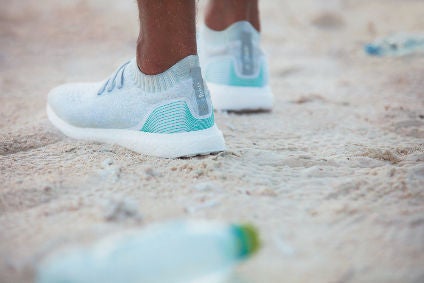
Brands and retailers including Adidas, C&A, Esprit, Hugo Boss, KiK, Lidl, Primark and Puma are among 116 members of the German based Partnership for Sustainable Textiles who have submitted roadmaps outlining concrete steps to increase sustainability in their textile supply chains.
Details of the first 60 roadmaps have just been published publicly online following a review by external experts, with the other half set to be published in September.

Discover B2B Marketing That Performs
Combine business intelligence and editorial excellence to reach engaged professionals across 36 leading media platforms.
The Partnership for Sustainable Textiles, set up in 2014 by Germany’s federal ministry for economic cooperation and development, says members have set themselves 1,300 specific targets to pursue in 2018 and will report on their accomplishments the following year.
The action plans – which have also been filed by Vaude, Tchibo, s.Oliver, Otto Group and Gerry Weber – set out concrete steps to ensure humane working conditions, greater environmental protection and fair wages in their own companies and in their suppliers’ production facilities.
“This can be considered a major step forward, as it means that many members agree on revealing even sensible information for the first time,” the partnership says.
It adds: “The roadmaps are an important step for making the textile supply chain more sustainable. Such a broad impact could hardly be achieved by a single actor on its own,”

US Tariffs are shifting - will you react or anticipate?
Don’t let policy changes catch you off guard. Stay proactive with real-time data and expert analysis.
By GlobalDataAll members have agreed to take action to fight child labour.
The other action steps – around 1,300 in total – relate to issues such as risk management and the handling of complaints, avoiding health-threatening chemicals, the sustainable use of water resources, the implementation of living wages, and the gradual exclusion of 160 hazardous chemicals substances from the production line.
Another commitment sees all members who use cotton jointly agree to increase their use of sustainable and organic cotton to 35% by 2020. Progress will be documented in reports published by the textile partnership from 2019 onwards.
“The mandatory processes and higher levels of transparency are cornerstones for building the credibility of the partnership,” says Jürgen Janssen, head of the partnership’s secretariat.
“Along with constructive, fair and open dealings with one another, they lay a solid foundation for making supply chains fundamentally more sustainable. We build on ambitious progress, on cooperation and on the exchange of knowledge and experience – in the future, we will also liaise more and more with our strategic partners in Europe and across the world.”
The production of action plans to boost sustainability in chemical and environmental management, social standards and living wages, as well as natural fibre production and processing is a major milestone for the partnership.
Last year it admitted to just-style that creating these roadmaps was a complex task, and had contributed to a fall in membership as companies that did not comply either left voluntarily or were forced to leave.
The partnership currently has 128 members, including seven advisory members and five new members, who are not required to submit reports until next year.
Its goal is to try to ensure clothes destined for the German market comply with social, ethical and environmental standards from raw cotton to the finished product.
“Since Germany is the world’s second largest importer of textiles, it carries a particular responsibility and can achieve a great deal through collective engagement,” the partnership says. Members cover roughly half of the German market.
To broaden its reach, the partnership earlier this year teamed up with the Dutch Agreement on Sustainable Garments and Textiles (AGT) in a move aimed at aligning the sustainability requirements of the two groups.





